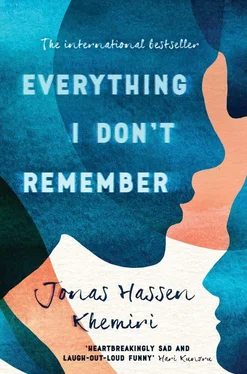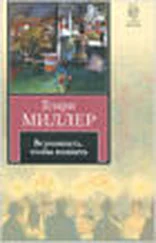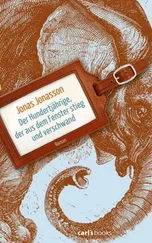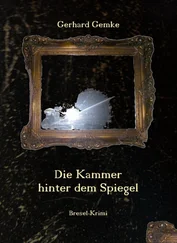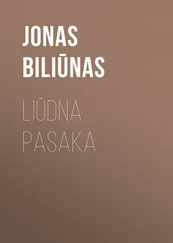*
You’re lying.
*
One evening I go back to the dementia home. Guppe shows me into the TV room where Samuel’s grandma is sitting in front of a muted screen with a remote in her hand.
*
You’ve got to understand, it was a symbolic administrative fee. It got bigger because the household expenses grew as more people moved in.
*
Guppe cautiously touches Samuel’s grandma’s shoulder.
“You have a visitor.”
She looks up and smiles.
“At last! I’ve been waiting so long!”
She hugs me and I hug her back, unsure of who she thinks I am.
*
I never betrayed Samuel. I never cheated him out of money.
*
Samuel’s grandma tells me what they had for lunch and asks three times if I’m hungry.
“No, I’m fine,” I say. “I ate before I came over.”
“Wouldn’t know to look at you.”
She asks if my sister is well and how my mom is. I try to explain that I don’t have a sister, and that my mom is fine, but my mom isn’t her daughter and I’m not Samuel, I’m me. Are you sure of that?
*
I never confiscated any passports. I never threatened to call the police.
*
I explain that I was neighbors with a Swedish artist in Berlin who called herself Panther, and that was how I met her grandson Samuel.
“Even though we didn’t know each other very well I’d like to ask you about the last time you saw him.”
“The last time?” she says, her eyes opening wide.
It looks like something is breaking loose inside her.
*
I had no connection at all to that boy in the wardrobe.
*
Once she has calmed down and taken her medicine, we sit without talking.
“Oh dear, oh dear,” she says.
The news is on TV. I want to ask if she remembers anything about the last day. Does she recall what they talked about that afternoon? Did Samuel seem sad? Unbalanced? Was he himself, or someone else? But I don’t ask her any questions. We just sit there. In front of the muted TV.
*
None of it was my fault. Everyone is lying. Just like Hamza lied to the police when he was arrested and the prosecutor lied to the judge when he said that I was behind everything that happened on our rounds. Just like my lawyer lied when she said it could be worse and the prison chaplain lied when he said time heals all wounds.
*
After a while she takes my hand, she hums a tune, her hand is warm, she has elephant-wrinkly skin and brown liver spots that look like they’re about to fall off. Her hands look like Grandma’s.
*
Are we almost done? Do you want to ask one last question?
*
“Vandad,” she suddenly says. “How is Vandad?”
“I don’t know,” I say. “But I’m going to see him soon. Did Samuel talk about Vandad the last time you saw each other?”
“Oh, did he ever. Samuel always talked about Vandad. Vandad this and Vandad that.”
*
Oh yeah? And what do you want me to do with that information?
*
“Is Vandad a man or a woman?” Samuel’s grandma asks.
“A man.”
“‘Well, look at that,’ said the optician to the fly.”
*
Listen. We were friends. We were brothers. We shared everything equally and we were loyal unto death.
*
“But I’m sure Samuel talked a lot about Laide, too?” I ask.
“Who?”
*
But it was never anything more than friendship.
*
“Vandad,” she says again. “Samuel went on and on about that Vandad. And the way he said that name, I knew it was something more than friendship. You can’t hide that sort of thing. Not from your grandma.”
*
You can decide for yourself who to believe — me or an old lady. The guy with a photographic memory or the woman who can barely remember her own name.
*
“His betrayal hurt him more than hers did.”
*
Why would I feel guilty? Don’t project your feelings onto me. I’m not you. Samuel isn’t you. Your actions are your own, don’t expect me to help you deal with them.
*
“I think he loved him.”
*
Stop. I don’t want to hear any more.
*
She dozes off. I sit beside her. Her breathing is calm. Sometimes a snore comes out. Sometimes she becomes perfectly quiet and doesn’t take a breath for five or six seconds. I look at her, I lean forward, I almost have time to believe that she is. . when the next breath comes.
*
I’m done with this.
*
As the time nears eight thirty I rise, liberate my hand, and sneak out toward the elevators.
*
I have nothing more to say.
*
I stand there watching her through the pane of glass. And once again it’s as if she is. . Surely she hasn’t?
*
[Silence.]
*
I go back in to check, I place my hand in front of her mouth, I feel her breath. Warm and damp, like a child’s.
*
Take your money and go.
Diane (for everything)
Lotfi, Hamadi, Gudrun
Babak, Soledad, Ignacio, Mohamed
Joel, Karl, Rebecka, Shang
Daniel Sandström, Albert Bonniers förlag
Astri von Arbin Ahlander, Ahlander Agency
Jonas Hassen Khemiri, born in Sweden in 1978, is the internationally acclaimed author of four novels and six plays. His work has been translated into more than twenty languages, and his plays have been performed by over 100 companies around the world and received accolades including a Village Voice Obie Award for best script. His first two novels, One Eye Red and Montecore , were awarded several prizes in Sweden including best literary debut and the Swedish Radio Award for best novel of the year. His most recent novel, Everything I Don’t Remember , was awarded the August Prize 2015, Sweden’s most important and prestigious literary award. He lives in Stockholm with his family.
